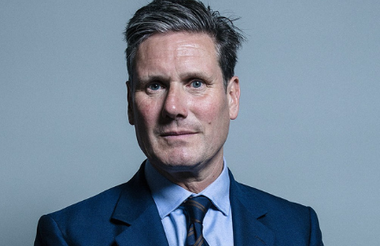I am writing this at lunchtime on 5 July, as new prime minister Kier Starmer has just delivered his victory speech on the steps of 10 Downing Street.
After 14 long years we are finally rid of the worst Conservative government in living history, and we have a new PM who speaks passionately about earning trust, restoring hope, returning politics to public service, and putting country before party. Wow. I could actually cry.
I know that many people have criticised Starmer for being light on detail about how the new government will work with the sector to deliver on its five missions to get the UK back on track. And I’m aware that the Labour manifesto contained little that was specifically about charities, civil society, or volunteering. I noted the absence of any commitment to repealing the Tories’ heinous anti-protest laws, and that no deadline has been set for restoring the aid budget to 0.7% of gross national income.
In addition, I was disappointed during the election campaign with how little attention was paid to so many of our most pressing issues – by any party. The climate emergency got virtually no airtime, but there was also a distinct lack of analysis by the party leaders of the crises in our prisons, mental health, education and poverty. These are all enormous challenges which will require investment, innovation and commitment to address, and I doubt that Labour has instant solutions to any of them.
But as any campaigner will attest, meaningful change takes time, and Starmer and his team are barely in the door. In the months leading up to the election, both Starmer and shadow civil society minister Lilian Greenwood outlined their visions for closer partnership working with the sector, and were highly cognisant of the dismay that charities were feeling about their relationship with the last administration.
And maybe it’s because I haven’t had much sleep, but I found Starmer’s Downing Street speech genuine and moving, and I am willing to give the party the benefit of the doubt at this point. There are hundreds of new MPs in this intake, all bringing fresh energy, diverse experience, and new ideas – and quite a few are from the charity sector which is positive. As leader, Starmer might not be the most dynamic personality ever to have held the job, but I’ll take solid and steady all day long over the chaos and incompetence we’ve just endured.
In a happy coincidence, our coverage of the election in this issue corresponds with our coverage of the Charity Awards. Our Event Report starting on is a unique snapshot of charities’ value as innovators, service providers, campaigners and advocates – and what’s more, they are damn good value for money, too. If our new ministers want any inspiration for solutions to some of these entrenched problems I outlined earlier, this is as good a place as any to start.
Right, I’m off to get some sleep. We’ll have to wait and see if the change that Starmer heralds will actually come, and whether civil society will be invited to the table to help bring it about. But for today at least I – and many others, I’m sure – are feeling a lot better about things, and that’s good enough.












